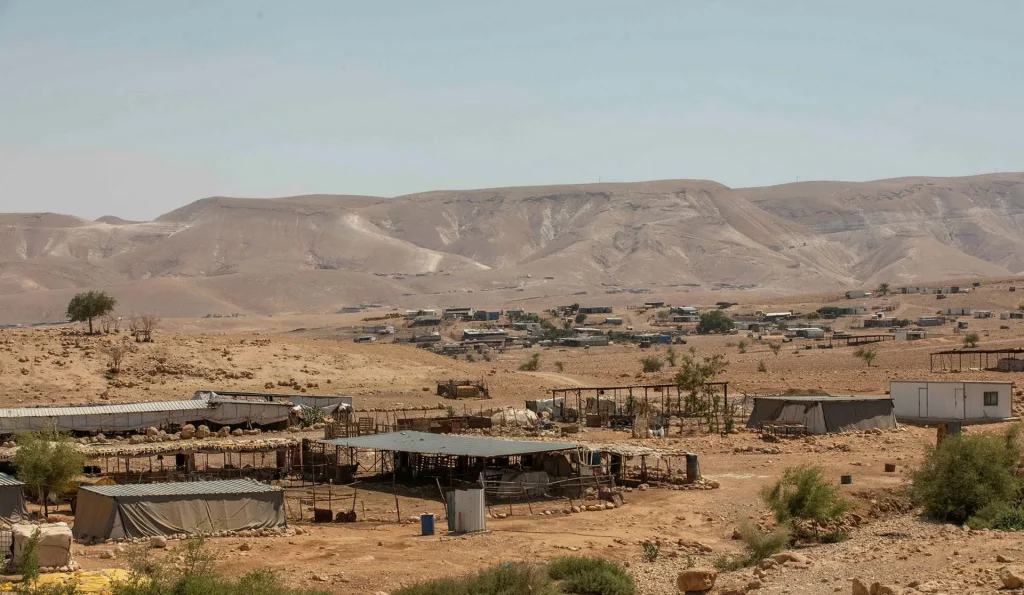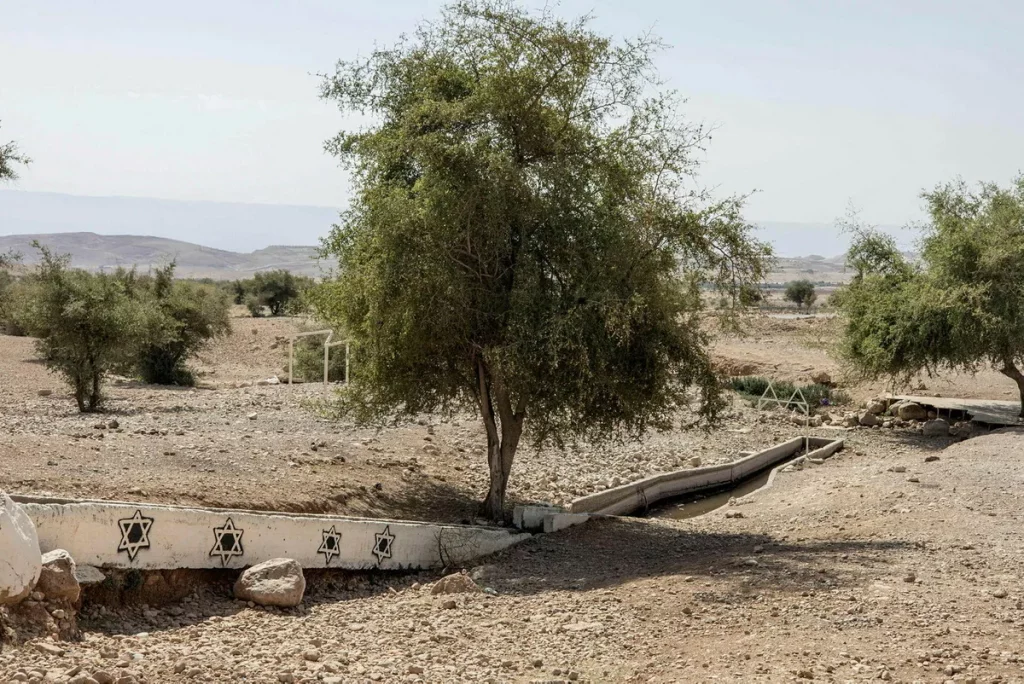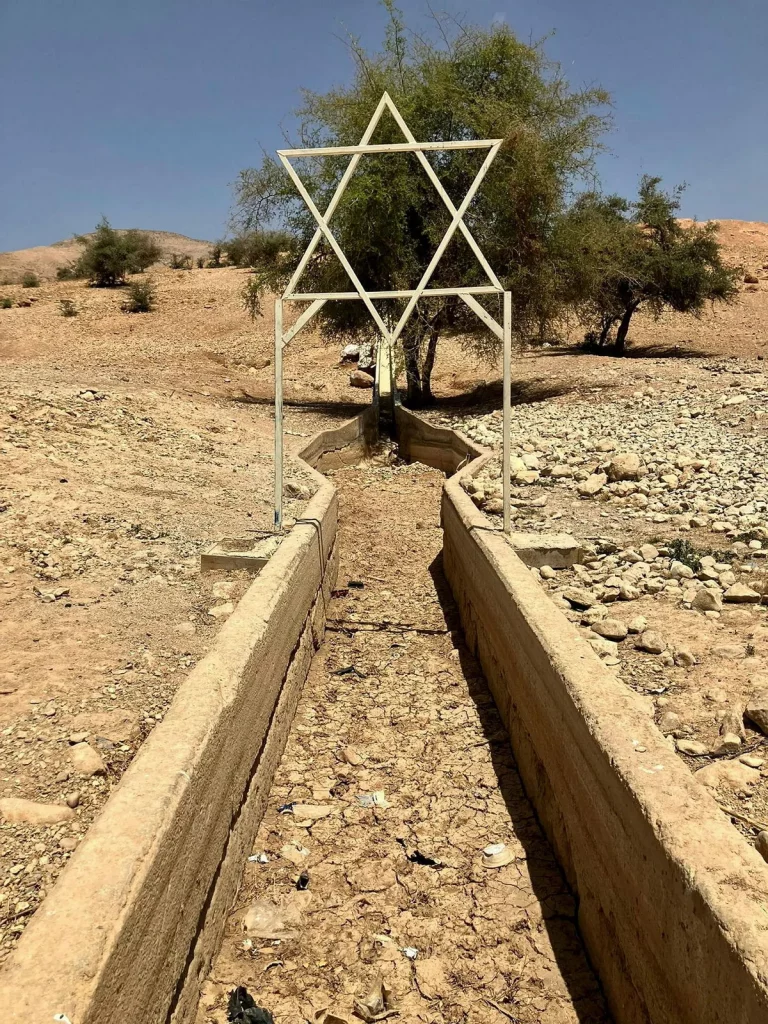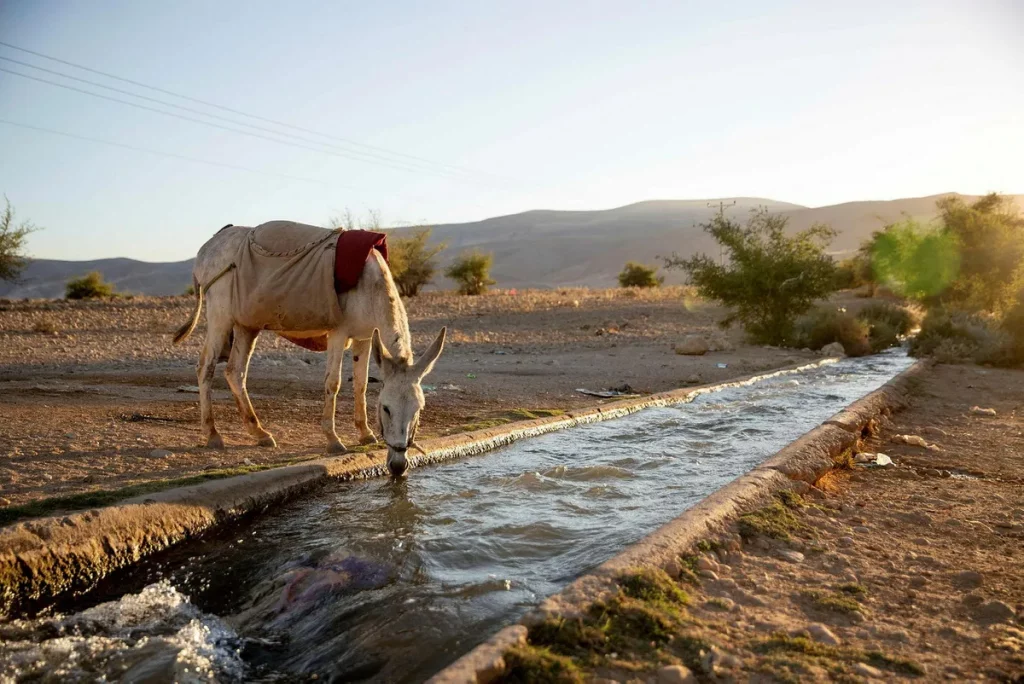The spring, which usually dries up once a decade during the month of July, has already dried up in early May. This forces Palestinian herding communities to buy water, leaving them susceptible to IDF blockades and increasing harassment from Jewish settlers
Zafrir Rinat Jun 2, 2025
The water crisis in the Jordan Valley has worsened in recent weeks with last winter’s severe drought, and the Ein al-Auja spring, the largest in the area, has completely dried up.
This problematic situation adds to other severe water accessibility issues suffered by Palestinian herding communities in the valley, due to the barriers set up by the Israel Defense Forces and harassment from Jewish settlers in the area.
- Settlers and soldiers unite to deny Palestinians water in the West Bank’s Jordan Valley
- ‘It’s my duty’: What brings these activists to a Palestinian town in the Jordan Valley
- This is what violent Israeli settlers really want to do to West Bank Palestinians
The Ein al-Auja spring typically flows with an average of 13 million cubic meters of water annually, equivalent to about 10,500 acre-feet or roughly 3.4 billion gallons per year.
The water flows down the topographic slope within the Yitav stream nature reserve, into a stone aqueduct that serves the Palestinian villages in the area. The spring usually dries up once a decade following a drought, but this has always happened in the month of July. This year, the spring dried up in early May, forcing Palestinians to buy water from local suppliers and transport it to the area in tankers.

The drought has also affected springs and water wells in the northern Jordan valley. Herding communities in the area encountered great difficulty in obtaining water even before, as a result of settlers taking over water sources and repeatedly damaging Palestinian water pumping and storage equipment.

The Israeli army, for its part, has also severely limited Palestinian access to one of the primary water sources near the village of Atouf. Here, too, Palestinians are forced to rely on local water suppliers.
The water shortage also affects the illegal outposts and agricultural farms established by settlers in the Jordan Valley over the last few years. Since the Ein al-Auja spring dried up, they began using a water connection at one of the farms for additional purposes and launched a fundraising campaign to help lay a pipeline from the “Malachei HaShalom” [Angels of Peace]” outpost in the nearby hills.
At the same time, reports of settler violence and threats have increased, as part of their efforts to tighten control of the area. A large Star of David was placed near the water canal in Ein al-Auja

The donation appeal reads, in part: “The cost of the pipe and summer water supply is 100,000 shekels. Please, partner with us, even with a small amount, and help us maintain the Jewish hold on the Auja stream.”
In addition, the settlers have been demanding that the Israeli Civil Administration supply water to the agricultural farms and the outposts in the area by drilling the Ein Samia spring, one of the largest springs between the Samaria region and the Jordan valley. They claim that the drying up of Ein al-Auja is due to the Palestinians pumping groundwater at Ein Samia, before the water flows eastwards down the slopes.

Despite the drought, the Mekorot water company has about 25 wells in the Jordan Valley from which groundwater is drawn. The water is not supplied to the Palestinian communities, which remain disconnected from other infrastructures, such as electricity.
The Civil Administration spokesperson stated: “The Administration is responsible for connecting water sources in Area C. The settlements [Palestinian herding communities] in question are illegal, and therefore, they are not legally connected to the water infrastructure. The regional authorities are working to find a variety of water supply solutions for the residents of the area, even beyond the letter of the law.”
